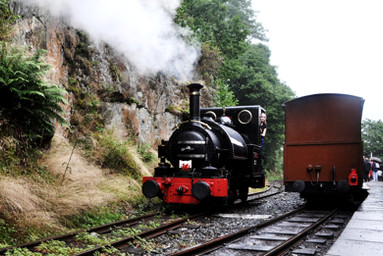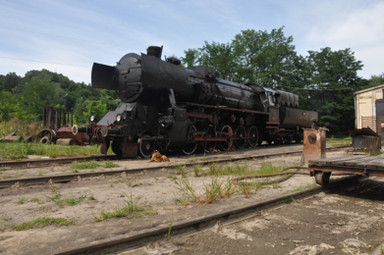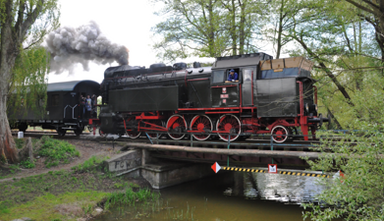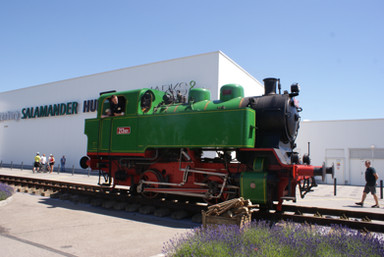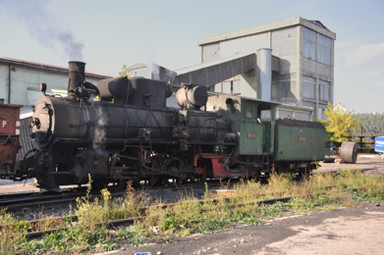HOME | DD
 bartpaaddiator — Mutated
bartpaaddiator — Mutated

#belgian #engine #pacific #prussia #steam
Published: 2015-05-04 18:31:53 +0000 UTC; Views: 530; Favourites: 12; Downloads: 4
Redirect to original
Description
This is one of those unique things... A narrow gauge pacific. Apparently build for some world exhibition, in Belgium (it has Belgian plates) as a miniature of a standard gauge design. Due to war chaos, this engine, somehow, ended up in Poland, where due to scarcity of engines it was used to pull sugar beet trains on a sugar works system. This was until '55 or so. After that it ended up preserved as a static exhibit. Now it resides in the Wenecja narrow gauge museum, connected to the Znin district railway system.Related content
Comments: 9

Last inspection being '55, don't get your hopes up.
👍: 0 ⏩: 1

Daaahhhhh but they ARE up
👍: 0 ⏩: 0

Freaky, strange, ill-begotten... Faithful, functional, and enduring.
👍: 0 ⏩: 0

It's a Tubize-built 'Liliput', part of a series of 6 modelled after the Type 1 locomotive of the Belgian Railways of the same builders. (in service 1935-1962)
The Liliputs were built for the 1935 World Expo in Brussels. They also saw service during the 1939 Exposition Internationale de l'Eau (International Exposition on Water Management) in Liège - where, coincidentally, my great-grandfather worked at the time. The latter was cut short due to an unfortunate series of events (the disaster of the Val-Benoît Railway Bridge in Liège on August 31st 1939; and the outbreak of World War II the very next day).
During World War II, 5 of the 6 Liliputs were confiscated by the German occupation forces and taken to Germany for use on industrial narrow gauge lines; this is how your loc (Tubize No. 2179 of 1935) ended up in Poland.
Coincidentally, one of its siblings (Tubize No. 2177 'Adolphe' of 1934 - named after the then-mayor of Brussels, and not after the 'other' Adolf...) also survives; it resides at the Stoomcentrum Maldegem in Maldegem, Belgium.
👍: 0 ⏩: 1

This is very interesting. I thank you for adding this history to my picture, now, thanks to you certain facts are forming a coherent picture of the issue. You have extensive knowledge of those things, and I admire this.
👍: 0 ⏩: 1

You're welcome!
It was such a surprise to see a picture of the other survivor, barely two days after I had seen the one myself! So thank you too!!
👍: 0 ⏩: 0

It's strange looking with the cab height, but I really like this locomotive, and it gives me modelling ideas with N scale locomotives...
👍: 0 ⏩: 0
